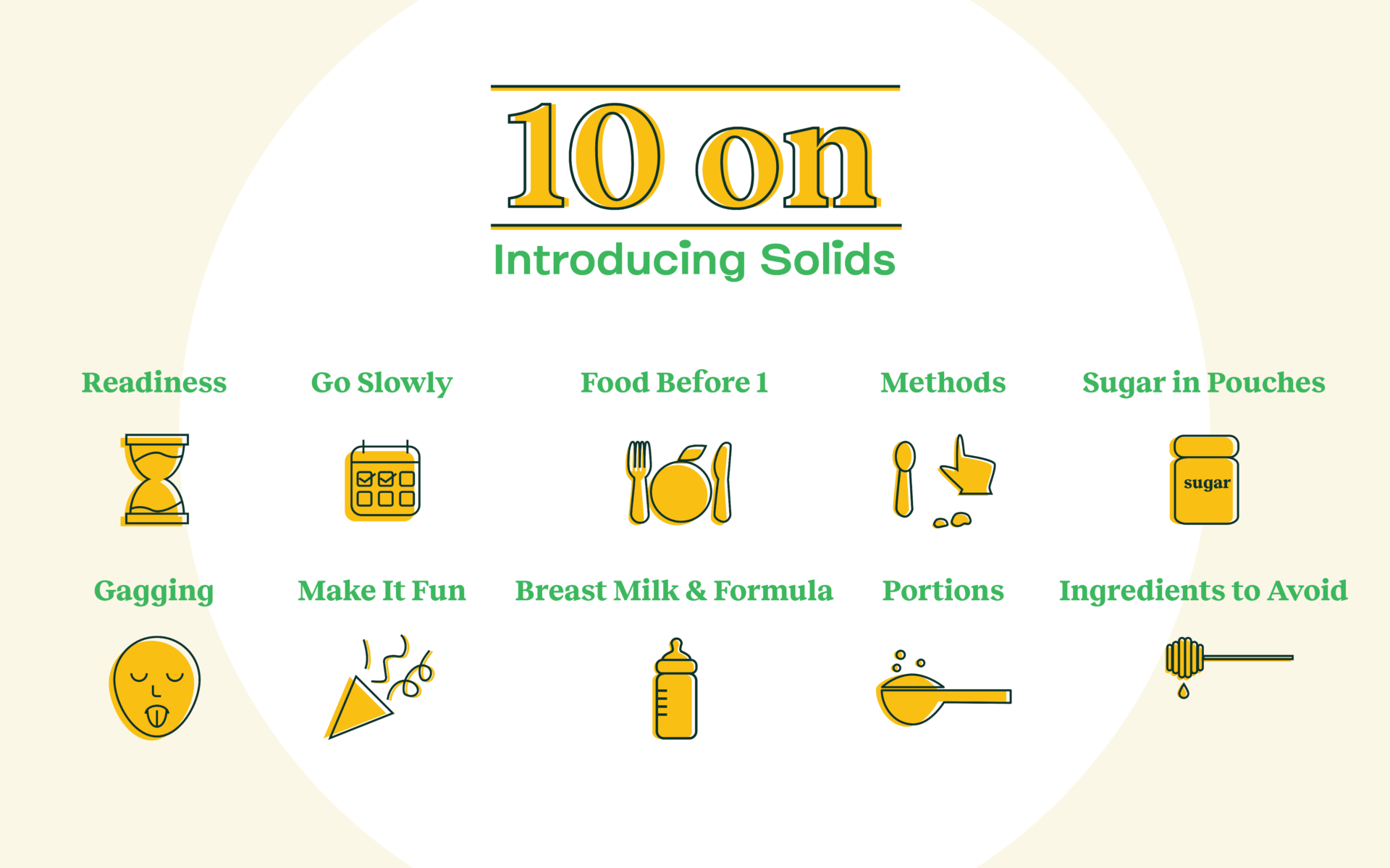We are proud to say that these posts are not sponsored. Our editorial team of Bobbie moms and writers personally select each featured product. If you buy something through our links, we may earn an affiliate commission, at no cost to you.
With so much information out there, it can be hard to know where to start when it comes to feeding your baby solids. Which are the best baby foods? How do you introduce first foods? Don’t worry, here are 10 things to know about introducing babies to food.
1- Is baby ready for solids?
There isn’t an exact age to introduce solids but around six months is the most widely recommended age. Your baby should have good head control, be able to sit up unassisted, and eager to participate.
2- Go slowly with solid foods
As with all transitions, introduce your baby to solid foods slowly. Wait for 3 to 5 days between each new food to watch for signs of intolerances or allergies.
3- Food before 1 year old
The idea that ‘food before one is just for fun’ is actually a myth. By six months babies need other sources of nutrition, particularly iron and zinc, alongside breast milk or formula.
4- Methods to introduce sold foods
Some babies like to be spoon-fed purees and others demand more control. Baby-led weaning allows your baby to take charge of putting larger pieces of soft finger foods in their mouth. Neither option is better than the other, it’s more of a personality thing.
5- Sugar in food pouches
Some parents prepare all meals from scratch, but the reality is, life gets crazy so most of us have some pouches on standby, too. Watch out for the sugar content and offer vegetable-based options over fruity ones where possible.
6- Gagging over new solid foods
Your baby might cough, gag, or spit up as they learn to adjust to new textures. This can be a scary learning curve but they’ll eventually be able to handle lumpier foods.
7- Make food time fun
As we all know, ambiance matters. Mealtimes can become a frustrating ordeal if your baby seems uninterested so try focus on making them fun, interactive, and engaging. This will help your baby develop a healthy relationship with food.
8- Portion size for feeding
Start by offering a teaspoon of food, then slowly increase to a tablespoon. Try to build up from one meal to three meals per day by approximately 7 months of age. Don’t force your baby to clean their plate, they will stop eating when they’re full.
9- Ingredients to avoid in baby food
Don’t give your baby honey in any form under 1 year, as it can cause rare bacterial infection in their intestines. Avoid adding sugar and salt to homemade food, and babies should also steer clear of cow’s milk throughout their first year.
10- Breast milk and formula with solid foods
No matter when your baby starts eating solids, breast milk and/or baby formula should make up the majority of their nutrition throughout their first year. Keep an eye on their iron and zinc levels if your baby doesn’t embrace solid foods before then.
Need more useful info from our 10:On series? Check out tips regarding baby gas, baby allergies, baby poop and more.

